Meet Smudge
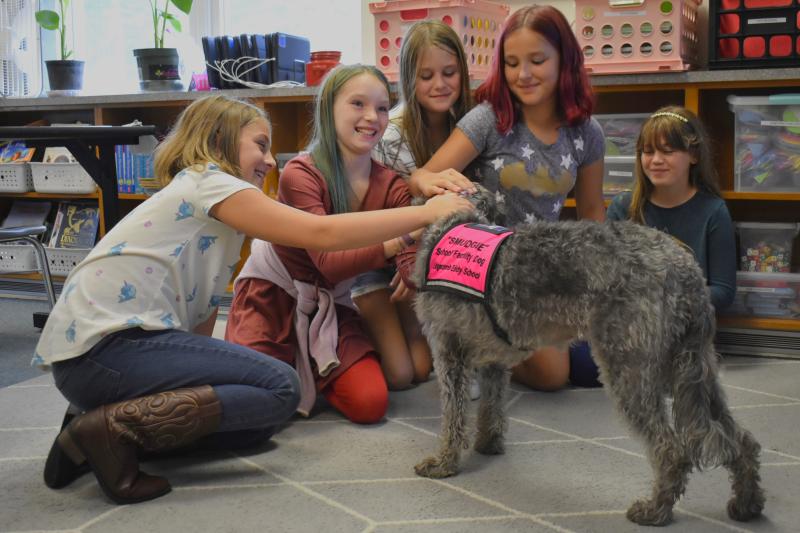 Students give a little love to Smudge, a facility dog at Edgecomb Eddy School. FRITZ FREUDENBERGER/Boothbay Register
Students give a little love to Smudge, a facility dog at Edgecomb Eddy School. FRITZ FREUDENBERGER/Boothbay Register
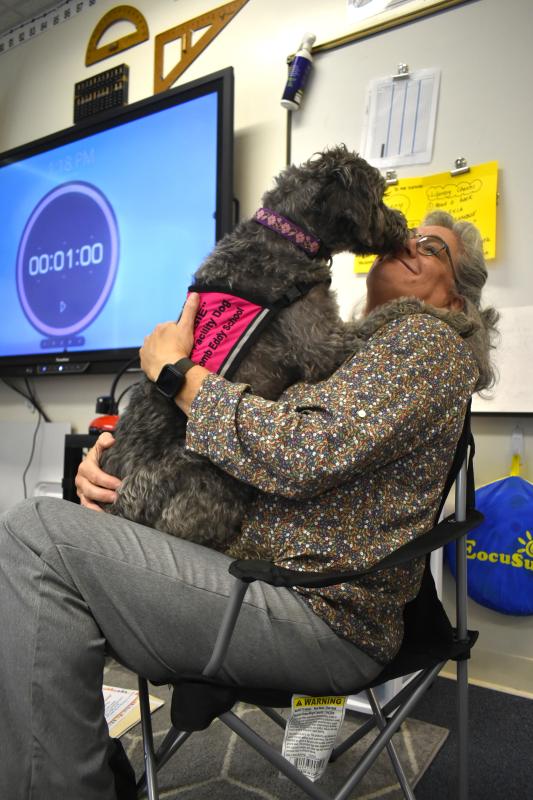 Smudge and owner Katherine Race. FRITZ FREUDENBERGER/Boothbay Register
Smudge and owner Katherine Race. FRITZ FREUDENBERGER/Boothbay Register
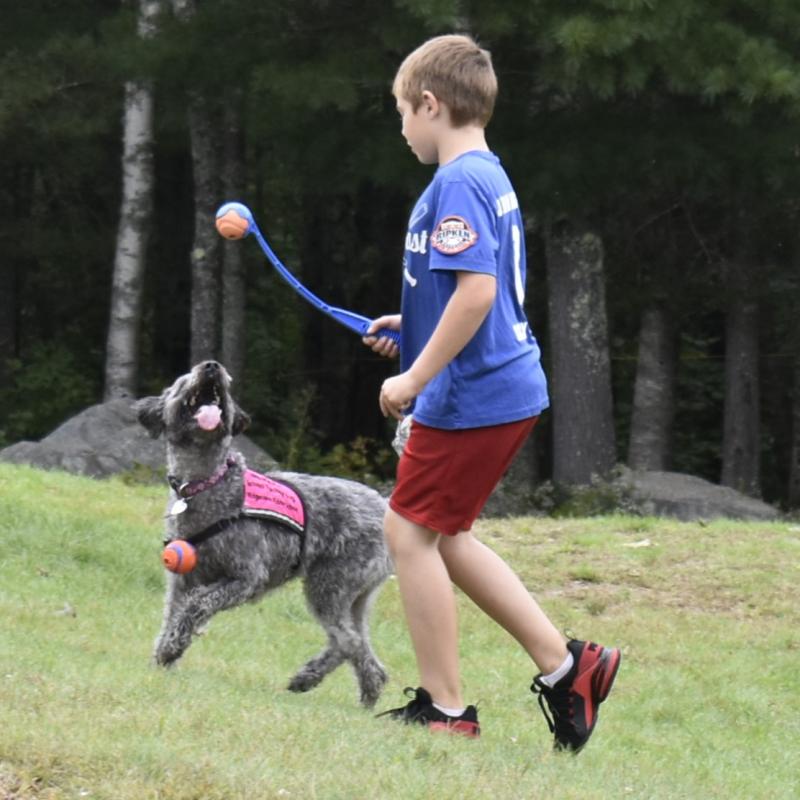 FRITZ FREUDENBERGER/Boothbay Register
FRITZ FREUDENBERGER/Boothbay Register
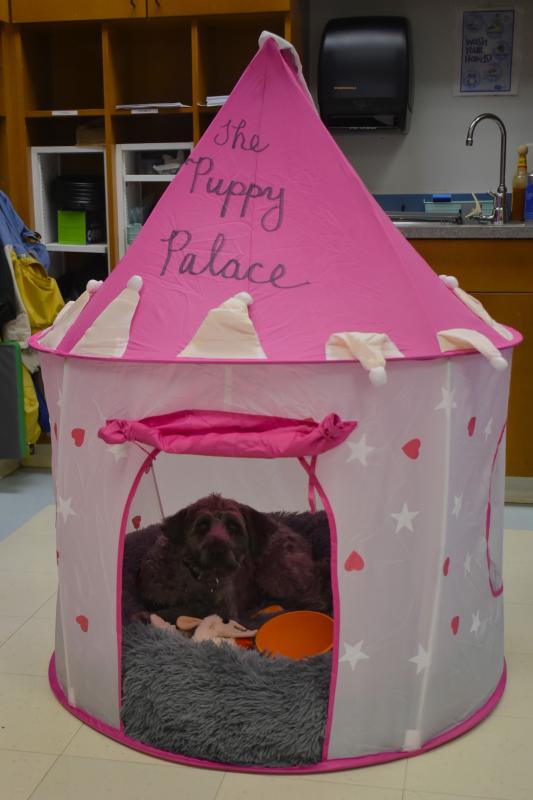 The puppy palace in Race’s homeroom. FRITZ FREUDENBERGER/Boothbay Register
The puppy palace in Race’s homeroom. FRITZ FREUDENBERGER/Boothbay Register
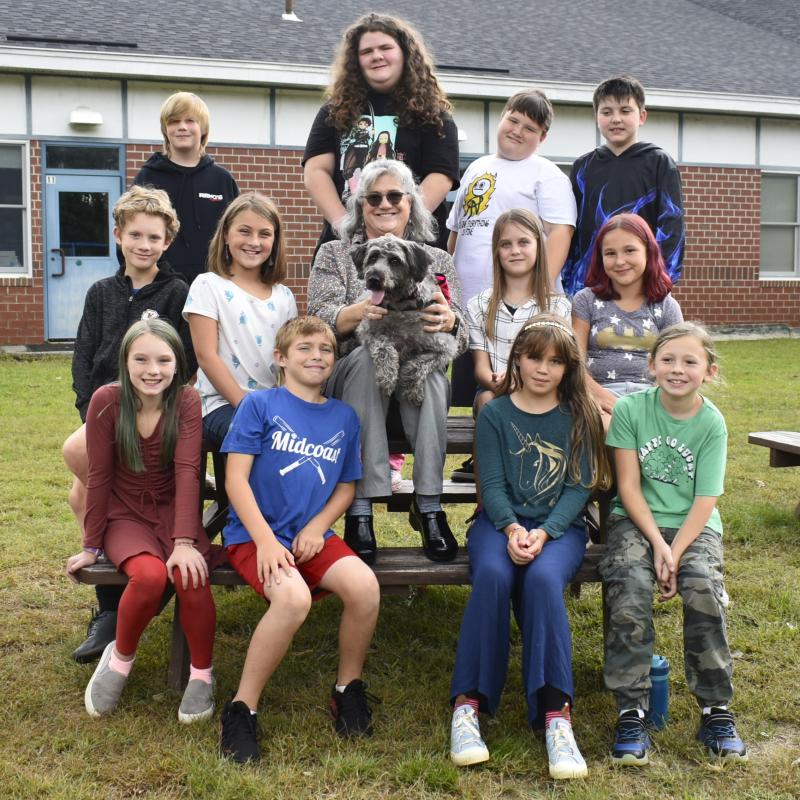 Katherine Race and her class. FRITZ FREUDENBERGER/Boothbay Register
Katherine Race and her class. FRITZ FREUDENBERGER/Boothbay Register
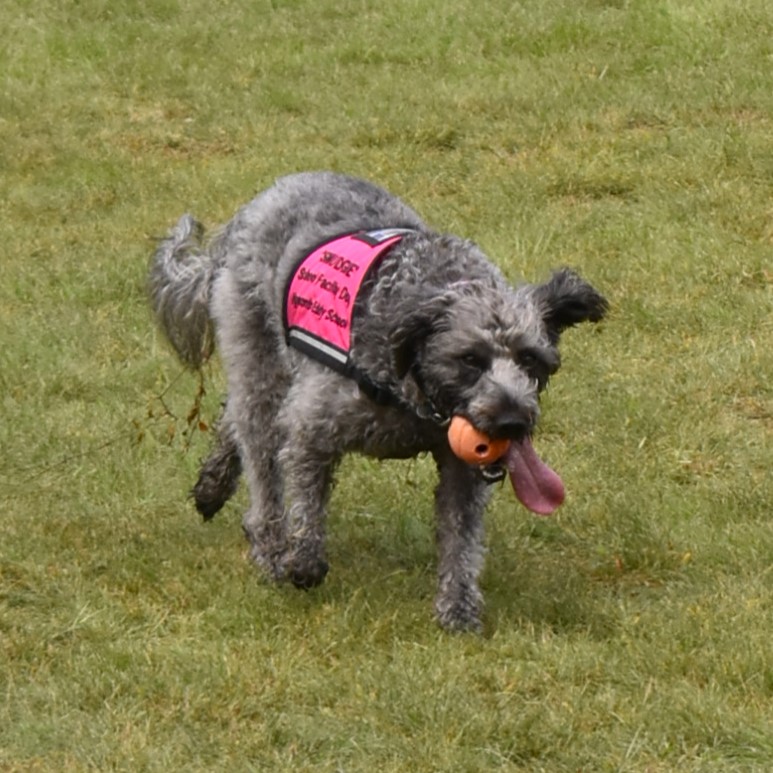 FRITZ FREUDENBERGER/Boothbay Register
FRITZ FREUDENBERGER/Boothbay Register
 Students give a little love to Smudge, a facility dog at Edgecomb Eddy School. FRITZ FREUDENBERGER/Boothbay Register
Students give a little love to Smudge, a facility dog at Edgecomb Eddy School. FRITZ FREUDENBERGER/Boothbay Register
 Smudge and owner Katherine Race. FRITZ FREUDENBERGER/Boothbay Register
Smudge and owner Katherine Race. FRITZ FREUDENBERGER/Boothbay Register
 FRITZ FREUDENBERGER/Boothbay Register
FRITZ FREUDENBERGER/Boothbay Register
 The puppy palace in Race’s homeroom. FRITZ FREUDENBERGER/Boothbay Register
The puppy palace in Race’s homeroom. FRITZ FREUDENBERGER/Boothbay Register
 Katherine Race and her class. FRITZ FREUDENBERGER/Boothbay Register
Katherine Race and her class. FRITZ FREUDENBERGER/Boothbay Register
 FRITZ FREUDENBERGER/Boothbay Register
FRITZ FREUDENBERGER/Boothbay Register
Katherine Race, a teacher at Edgecomb Eddy School, said one of her students recently experienced a terrible event. While she omitted the details, she said it was a traumatic experience no child should have to endure. He found an unusual source of comfort at the school. Smudge, the school’s first facility dog, was there to provide support when the child needed a friend.
“Yesterday was a very hard day because I was very upset with something, and Smudge was by my side every step of the way,” the student said. “I was thinking about it all the time, and I just couldn't get rid of it.”
He said Smudge rubbed against him and gave him licks for comfort. With her soft grey fur and calm demeanor, it is not hard to see how Smudge could help. The student said he still felt sad but, by the end of the day, he began to feel better, even OK. According to Race, scientific research shows physical contact with a dog, such as petting, lowers a person’s heart rate and helps them relax. It is a significant reason Smudge roams the school’s halls.
Smudge, a certified therapy dog, is the newest member of the school’s “staff.” Race brought the 2-year-old border collie poodle mix when she started this year, after 18 years of being a principal in Waldoboro and Lisbon.
Smudge is not her first working dog. Race has a doctorate from the University of New England, which she earned with a dissertation on the impact dogs have in an elementary school setting. She did the research at Regional School Unit 40 with Smudge’s older sister, Tilla, who also comes to Edgecomb Eddy.
“Having the right dog in the schools is helping with the stress level of kids because we have all talked about how stressful each of our lives are,” she said. “My goal, my legacy in education, I hope, is to leave schools with the idea that dogs in schools is, in fact, a very good thing and not something to be worried about.”
According to Race, the dogs are trained to be calm and non-reactive, but protecting and supporting the students is all instinct. Race said trained dogs can be at a student’s side when needed or give teachers indications something is wrong. Race also said students may feel more comfortable expressing their feelings and problems with a dog who won’t tell others or judge them. She told about one student who was having a very bad morning but could not tell his teachers about it. After talking to Tilla, he reset himself and got on with his day.
It is the unconditional love that stands out for Tom Landberg, Edgecomb Eddy’s principal. He said the dogs have no preconceived notions about people.
“For our kids, and many of us who are anxious, a big part of having the service dog or the therapy dog is really just it's an opportunity to be themselves, to not have to react to maybe what other people think of them,” Landberg said. "It’s that unconditional love piece and that non-judgmental piece that, I think for kids, they really latch onto.”
Race and Landberg said the students see Smudge and Tilla as a shared resource. Landberg said the children recognize Smudge is there for a purpose, and not just for themselves but their classmates.
Smudge is the first working dog to be a part of Edgecomb Eddy and the smoothness of the transition surprise some people. Landberg and Race said having a dog in the school does not disrupt education, it helps it.
“I've seen nothing but patience, kindness and respect from our kids around a dog that's here at school and their ability to work with the adults around it, it makes for no problems whatsoever,” he said.
Landberg said the school board was supportive of bringing Race and her dogs on board. He said they came as a packaged deal with a proven policy that could be adopted to the school’s needs. He is now finding out that many of his colleagues have working dogs in their schools.
“I think that it just fills a social-emotional need that all kids need, so I think it's becoming more commonplace,” he said. “And if I were to make a recommendation to any colleague, I would say if a service animal comes your way, take full advantage of it without question.”
Race said one of her hypotheses when she began her dissertation was that a dog would be a distraction. She said she found out it is the opposite. She said there was an initial excitement of having a dog at school, but it just became part of the atmosphere, partly thanks to its non-reactivity training. According to Race, teachers can also use the dog as an incentive if they want to encourage students to be quiet, calm, or keep their hands still. Landberg said Smudge has not been a distraction but has given the students another reason to come to school on time and do the things they need to do.
A girl in Race’s class described being more excited to come to school, and said the dog’s presence boosts her attention. She said Smudge helps people who are sad, mad, or frustrated, and she felt emotionally safer with the dog. The dog calms her, helping her find herself again, making it much easier to work and hang out with her friends, she said.
According to Race, other concerns with having dogs in schools are misplaced. Some people are worried about allergies, but Race said children come to school with more dander from household pets and livestock than one hypoallergenic dog can bring in. Race also said some religions think dogs should not be so close, in which case a plan would have to be made to accommodate them. Another general concern is a potential liability. Race said she would never say a dog would not bite if it was being taunted or getting hurt. However, she said she has had more incidences of children biting each other than dogs biting children and “the dogs have never, ever put their mouths on a kid in a ferocious way.”
Overall, she said none of these reasons are enough to not have a dog at school. She said the added value is huge: The school has a happy dog, happy kids who get exercise, better attendance and kids even make friends over the dog. Perhaps, most of all, Smudge is a friend when someone needs one.
“80% of our kids have enormous stressors, and we can't even imagine what the stressors are,” Race said. “... She doesn't differentiate between a child that's got poverty, that's got divorced parents, that has parents that have been incarcerated. She doesn't know the difference. So, there's no sense of kids having to prove their worth to her. She just accepts everybody for who they are. And in this day and age, that doesn't happen often.”



































